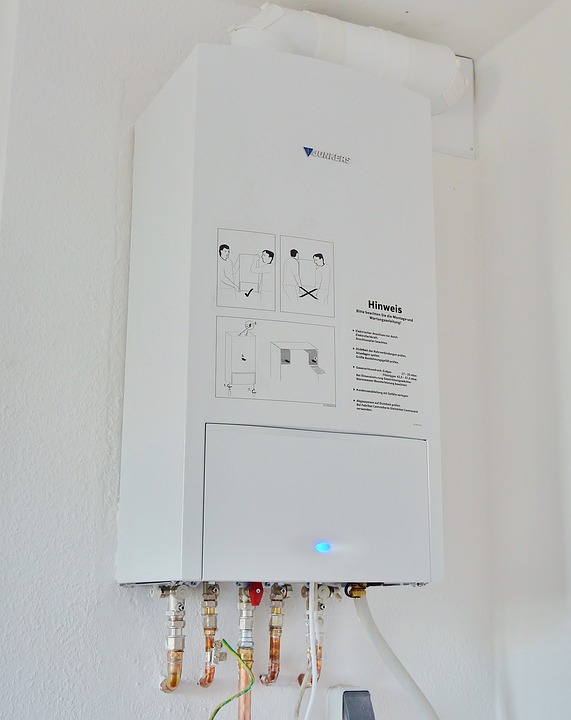
Tankless Water Heaters
Are you searching for a reliable and efficient way to heat your home’s water? If so, a tankless water heater may be the perfect solution.
Tankless water heaters are growing in popularity due to their energy-saving benefits and long-term cost savings. Today’s guide will help you understand the different types of tankless water heater units available on the market today, including electric, gas, propane and solar models. We’ll also provide some tips for choosing the right unit for your needs.
With this information in hand, you can make an informed decision when purchasing a tankless water heater that is both effective and affordable!
Contact the team of top-notch plumbing technicians at Diamondback to learn more about tankless water heater units.
Types of tankless water heaters
Tankless water heaters are different from traditional tanked water heaters because they don’t have a storage tank. There are four types of tankless water heaters — electric, gas, propane and solar.
Electric tankless water heaters use an electric element to warm the water as it goes through the unit. Gas-powered units use a high powered burner to make the water hot. Propane models also have a burner that uses propane gas to make the water hot, and solar models get their energy from the sun’s rays.
Benefits of tankless water heaters
Tankless water heater units are a great choice for many households because they offer a variety of advantages over traditional tank-style heaters. First, tankless water heaters take up significantly less space than traditional tanks and can be mounted on walls or other discreet locations, making them ideal for homes with limited space.
Second, tankless water heaters provide an endless supply of hot water, eliminating the need to store large quantities in a storage tank.
Third, since tankless systems only heat water when it is needed, they yield energy savings by not having to maintain a steady temperature in the stored water while using less energy overall.
Lastly, they are extremely durable and reliable due to their simple design and lack of moving parts; this means that these units last longer than traditional tanks and require much less maintenance which can further reduce costs over time.
Tankless water heater safety features
Tankless water heaters also offer safety benefits over their traditional counterparts. Since there is no longer any need to store large amounts of heated water in a storage tank, there is also no risk of leaks or dangerous temperature buildup that could potentially lead to scalding or explosions.
Additionally, since the heating elements used by most tankless systems require electricity only when activated by incoming cold water flow they are safer than gas-powered units as there is no risk of carbon monoxide poisoning or open flame hazards associated with them.
Finally, modern tankless units come with built-in safety features such as automatic shutoff switches and temperature limiters that help prevent burns and other accidents from occurring even in the event of power outages or system failures.
4 tips for choosing the right tankless water heater unit
Here are four pro-tips for picking out the optimal tankless water heater:
- Determine the right size tankless water heater for your needs: The size of a tankless water heater depends on the amount of hot water your household requires, so it’s important to accurately measure this before making any purchase decisions.
- Consider fuel source and efficiency ratings: Tankless water heaters typically run on either electricity or gas, so you will need to determine which type is best suited for your home and budget. It’s also important to consider energy efficiency ratings when selecting a unit as high-efficiency models can help offset the initial cost over time by reducing energy costs associated with running it.
- Research installation requirements beforehand: Different types of tanks have different installation requirements, so make sure that you are familiar with what is needed before purchasing one for your home as some may require special permits or additional work in order to be properly installed in accordance with local code regulations.
- Examine warranties carefully: Most manufacturers will offer a warranty on their products, but they vary greatly from model to model depending on factors such as construction materials used and expected lifespan; be sure to compare them thoroughly before committing to any particular model as this could save money down the line if something goes wrong later on down the road.
A buyer’s guide to tankless water heaters — Conclusion
Tankless water heaters offer a number of benefits for homeowners, from energy and space savings to safety features that reduce the risk of explosions or scalding. With the right size unit and an understanding of installation requirements, you can ensure your tankless system is up and running in no time.
When selecting a model, it’s important to consider fuel source options as well as efficiency ratings in order to maximize long-term savings on utility costs. Finally, be sure to compare warranties carefully so that any unexpected issues down the road are covered by the manufacturer’s guarantee.
Investing in a quality tankless water heater now will pay off with years of reliable hot water delivery whenever needed!






